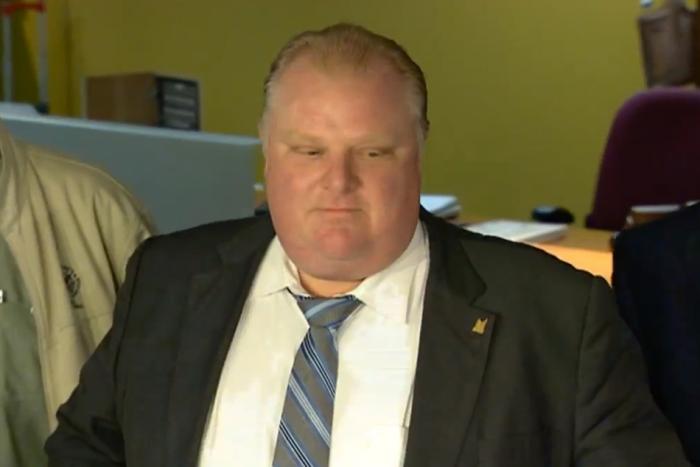Lost to American history is the political visionary Roman L. Hruska, a Republican senator of the Nixon years. In 1970 he backed G. Harrold Carswell as a candidate for the Supreme Court, described by critics at the time as a “mediocre” judge. “Even if he were mediocre,” Hruska told the Senate, in a canny lemons-to-lemonade gambit, “there are a lot of mediocre judges and people and lawyers. They are entitled to a little representation, aren’t they, and a little chance?” Carswell’s nomination was rejected. Roman Hruska retired from politics in 1976, and two years later the White House renamed a federal facility in Clay County, Nebraska, as the Roman L. Hruska Meat Animal Research Center: a proper tribute to an early champion of the unremarkable.
Photos of Hruska suggest a man who wore suits even to the beach. He lived to be 94, perhaps his only nod to excess, and was buried, of all places, in the Bohemian Cemetery in Omaha. What’s missing, however, is any recognition of Hruska as a political prophet: he saw it all coming, the end of Cold War hysteria, the end of ideology, and the triumph of uninspired and uninspiring leadership as the guiding principle of mainstream party politics in both the US and Canada. No longer is mediocrity entitled to a “little representation”; it’s now seen as the key to electoral success. Here, Canadian voters are asked to support the party least likely to alarm the marketplace, and they have three remarkably similar choices. Sometimes they vote Liberal, sometimes they vote Tory, and in Quebec they vote NDP but maybe just the once. It all depends on who can make our lives less dramatic and therefore more economically stable. Justin Trudeau uses the term “middle-class” at every opportunity, as if average were a Canadian value. “Canadians are generally skeptical of transformative change,” said pollster Nik Nanos after Trudeau won the Liberal leadership race, adding that the new leader “must be very careful not to overreach.” He hasn’t, he won’t. He might win.
Who are these Canadians who are generally skeptical of transformative change? I travel in the wrong circles. I haven’t met any. My people are mostly radicals who talk about climate change and income inequality and whether cyclists should be allowed on the sidewalk. A little transformation would be right up their alley. But they can’t compete with the Marshmallow Middle and its sticky hold on both politics and commerce. James Altucher, author and entrepreneur, wrote in The Rumpus that “everything I have done has been distinguished by its mediocrity, its lack of a grand vision, and any success I’ve had can be put as much in the luck basket as the effort basket... If you want to get rich, sell your company, have time for hobbies, raise a halfway decent family (with mediocre children), and enjoy the sunset with your wife on occasion.” Even in business, among consultants, it’s fashionable to talk about the long-term benefits of setting a low bar. The goal is to not to re-invent the wheel but, well, just sell wheels. Everyone likes wheels. Make no waves, keep your head down... this is the mantra of the global marketplace which rolls along like marbles on glass until the next crash, by which time you’ve cashed out.
In a marketplace where employers find any reason to downsize, or in a hyper-vigilant security state, it makes some sense not to stand out. I was thinking this reading William H. Gass’s novel Middle C which, from title to end, imagines a character who aspires not to greatness but to the protection of anonymity. Middle C of course is both the purest and most banal musical note: in a chord it disappears, but without it there’s no chord. Middle C is also the barely passing school grade, neither failure nor success, both of which draw too much notice. In the book, Joey Skizzen, born in Austria before the war, winds up in England when his father Rudi dreams up a plan to get the family out before the Nazis march in: they will pretend to be Jewish, to take advantage of the underground railroad smuggling Jews out of Europe. The plan works, and it doesn’t cost Joey’s father, now calling himself Yankel Fixel, a dime.
“What he wanted was to fade into the background,” Joey says of his father, “be a piece of household goods lost in the rubble of war.” In London, Yankel Fixel becomes yet another self-made nobody: Raymond Scoffield. Raymond has plans. But those plans don’t involve the rest of the family, and Joey, his mother, and his sister, wind up in America to search for him after disappears. For Joey, the American midwest offers a chance to follow in dad’s footsteps—“the chance at an unnoticed life.” In school he cultivates a deliberate non-identity: “From the back row he never asked a question or answered one, if he could help it. He never took chances, shuffled his feet, whispered or passed notes, or surreptitiously read an illicit book while it hid inside the assigned one. He dressed as plainly as possible, stayed awake in study hall, didn’t join, date, suck up or hang around. He was resolutely friendly but had no chums.” History, his own and the world’s, is unkind to those who stick out: those who are noticed are targets for the jealousy, or, more often, the violence of others. “[D]o not fall so low as to be treadable,” says Joey, “because people tend to watch where they step, curse when they stumble, and tromp upon supines and other grovelers. Never fail, merely pass. Slip by.”
From street level, Joey is the middle-class marshmallow American that mainstream politics wants to court: never takes chances, never shuffles his feet. But Gass counters this acquired mediocrity by assigning a rich (and sometimes baffling) inner life to Joey. He’s a closet activist: he collects newspaper clippings of human atrocities, genocides, war, constructing his own Inhumanity Museum in his attic. On the outside he’s a self-invented nobody but inside he seethes with conviction.
Last year an Environics poll for the left-leaning Broadbent Institute found that 79 percent of Canadians felt that income inequality, if “left unchecked,” would have a “long-term negative impact on Canada by reducing our standard of living,” whatever that means. But it sounds dangerously close to moral conviction: it’s as if the mushy middle is paying attention to those left behind. Rather than keeping their heads down they’re making strange new noises.
The Joey Skizzens are the reason brand-name political parties will never overreach. But then they risk underestimating that which might one day undo them: the rich inner life, and (surprise!) some voters have it. Privately, they care about more than themselves. As Roman Hruska would say, they deserve a little representation.






